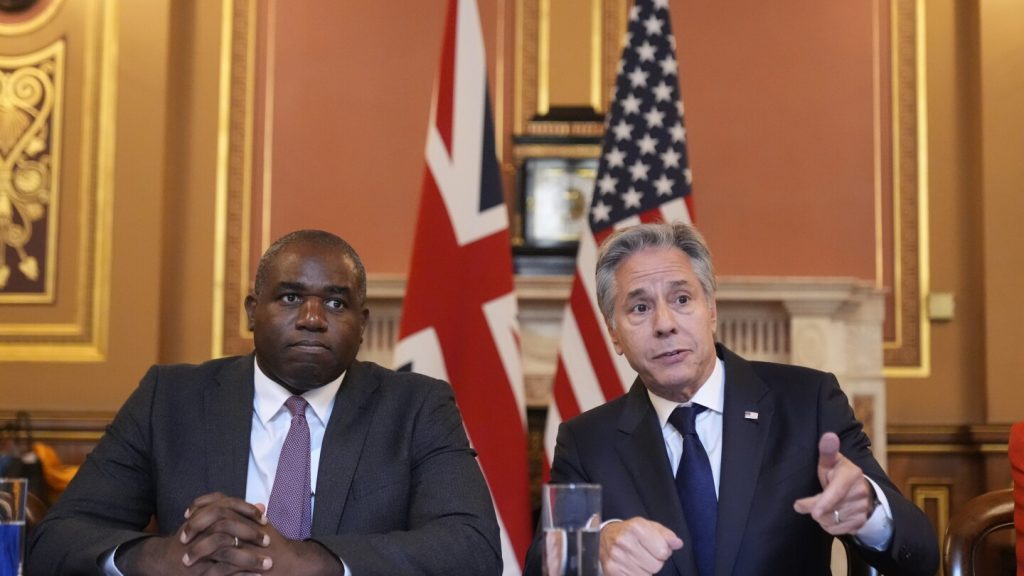The United States and Britain have accused Iran of supplying short-range ballistic missiles to Russia to use against Ukraine, leading to new sanctions on both Moscow and Tehran. U.S. Secretary of State Antony Blinken and British Foreign Secretary David Lammy made the announcement during a joint visit to London, stating that the transfer of these weapons would escalate the conflict in Ukraine. The missiles in question, the Fath-360 close-range ballistic missile system, have a maximum range of 75 miles and have been received by Russia for potential use in Ukraine. The accusations come as Russia is attempting to repel Ukraine’s surprise offensive in the Kursk region.
Iran has denied these allegations, with the country’s foreign ministry stating that the reports are part of a propaganda campaign to distract from other issues in the region. The U.S., U.K., France, and Germany have all imposed new sanctions on Iran and Russia, calling the missile transfers a direct threat to European security. These penalties include canceling air services agreements with Iran and sanctioning individuals and businesses involved in sending drones and missiles to Russia. The U.S. has previously imposed economic sanctions on entities connected to Iran’s drone program, despite Iranian denials of involvement.
The announcement of sanctions precedes a visit to Kyiv by Blinken and Lammy, where they will meet with Ukrainian President Volodymyr Zelenskyy to discuss bolstering the country’s defenses. The U.S. has allowed Ukraine to fire U.S.-provided missiles across the border into Russia in self-defense but has limited the distance to prevent further escalation. The visit is aimed at understanding Ukraine’s needs and objectives in the conflict, and how the U.S. and its allies can support those needs. The joint visit by Blinken and Lammy is a public signal of support for Ukraine ahead of what is expected to be a brutal winter of Russian attacks.
There are concerns about the growing defense relationship between Russia, China, Iran, and North Korea, which poses a threat to Ukraine and Western allies in the Middle East. The White House has declassified intelligence findings showing that North Korea has sent ammunition and missiles to Russia for use against Ukraine. Iran has also reportedly supplied Moscow with attack drones and assisted in building a drone-manufacturing factory. China has not provided weaponry to Russia but has increased sales of technology used in producing weapons. The U.S. and its allies have been warning Iran against transferring ballistic missiles to Russia, citing a troubling pattern of escalation.
Despite the denials and accusations, the situation in Ukraine remains tense, with ongoing conflicts and the threat of further escalations. The joint efforts by the U.S. and U.K. to support Ukraine and impose sanctions on Iran and Russia are part of a broader strategy to address the security challenges posed by the conflict. The visit to Kyiv by top diplomats signifies a commitment to understanding and addressing the needs of Ukraine in the face of Russian aggression. As the conflict continues, the international community remains vigilant in monitoring and responding to developments in the region.


